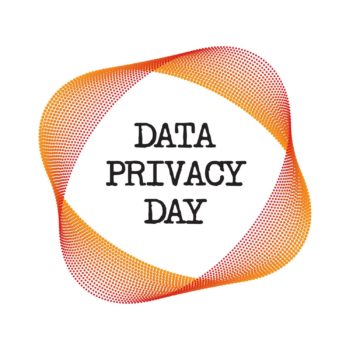Data Privacy Day 2020: How the Ad Tech Industry is Leading a New Era
by Mathew Broughton on 28th Jan 2020 in News

In association with Ogury.
Every 28th of January, the technology sector marks Data Privacy Day, a Council of Europe initiative that aims to promote and protect consumer rights online. Now in its 13th year, Data Privacy Day has become a global initiative. In order to take stock of how far we’ve come and what is left to achieve in terms of data privacy, ExchangeWire and mobile ad tech company Ogury spoke with leading figures from both UK brands and agencies, shining a light on the imperative shift within the digital advertising industry in 2020 and beyond.
Do you think GDPR has had a positive impact on the digital advertising industry, and why?
“GDPR’s impact on the digital advertising industry has been to refocus our attention on the end consumer and the appropriate use of personal data in developing and placing advertising. Strategically, it has obliged us to take a step back and rethink our approach to identity and personalisation at scale, and ensure that we place the consumer at the heart of that process.
"However, it is undeniable that privacy regulations are reinforcing friction across the digital advertising industry and ad tech landscape. For many companies, the GDPR introduction has created an environment of uncertainty and a high-degree of perceived risk, which has undoubtedly increased operating costs, reduced productive output in favour of administration and due diligence, and skewed potential innovation.”
Miles Pritchard, managing partner - data & technology solutions, OMD EMEA
“Absolutely. Digital advertising was one of the only industries left unregulated until relatively recently. This lack of regulation drove several areas of concern, starting from a lack of focus. Before GDPR, we were often using data and technology purely because we could and labelled it innovation, but that didn’t always mean we should have. But most importantly, there was a real lack of control: the pre-GDPR market had created a supply chain that made it near impossible to know when and in which context data was collected, or even its real source. To make it worse that ambiguity was sometimes intentional! What regulations like GDPR has done is made the industry clean up its act. We now advertise to people that actually want to listen… and that is producing some amazing work.”
Brendan Greenwell, audience strategy director, EMEA, Initiative
What do you think are the main benefits of data privacy regulations such as GDPR for customers?
“Having our customers and potential new clients consent for data sharing is of the highest importance to us. We take the user experience very seriously and that doesn’t start nor end with our advertising, site visits or the usage of our actual products via our app. When you look at our brand’s heritage, which took a lot of blood, sweat, tears & years, we always put the customer first.”
Jorma Kremser, global media manager, Bose Corporation
“The GDPR is aimed at improving transparency, control and active consumer consent for the use of personal data. However, the average consumer, not well-versed in digital advertising, may not be aware of these benefits.
"We must also be aware of unintended consequences. Free content through digital publishers will become a luxury of the upper and middle-classes as subscription fees come into place, replacing advertising revenues currently accrued through the monetisation of audience data. Most of the focus will likely be aimed towards 'pushing back' on tech giants, who are perceived to have gone too far in harvesting and monetising personal data for nefarious purposes (Cambridge Analytica).”
Miles Pritchard, OMD EMEA
“Consumer data has been mishandled systematically for decades. Data privacy regulations such as GDPR represent a necessary turning point for the digital advertising industry. A new era is upon us now. Consumers now expect choice and control over their data and digital advertising experience. Brands and agencies who put user choice at the centre of their ad strategy will thrive over the next decade, those who don’t will struggle.”
Raphael Rodier, chief revenue officer international, Ogury
As a global provider how do you handle different privacy regulations across the world (ie: GDPR in Europe, CCPA in California, Australian data privacy regulations...)?
“The way we handle any local nuance is to leverage our local expertise. This is to ensure that what we do is not just legally correct, but also the right thing to do, both from a cultural and regulatory standpoint. This isn't a new challenge though. It's just one digital advertising didn't have to solve until privacy laws came to regulate it. When you look at traditional advertising mediums, most of them require an independent governing body to approve the ad before it can be seen by the public. Then, the time and place of the ad placement needs to be carefully considered to comply with the specific markets regulations. Now compare that to the effort required to get an ad live in the almost entirely self-regulated online video space…”
Brendan Greenwell, Initiative
What is brands and agencies biggest challenge when it comes to data privacy?
“For decades the industry has turned a blind eye to the ways in which consumer data is obtained. As such, most of the data being used to fuel vendor technology today has a layer of mystery covering it. When, where and how was it collected? Was it taken with consumer permission, or not? This is no longer acceptable, or indeed legal. Being able to unequivocally prove the traceability of consumer consent is mandatory. Any advertiser or agency spending money with ad tech partners, should seek proof that the vendors they work with comply to all global privacy laws.”
Raphael Rodier, Ogury









Follow ExchangeWire